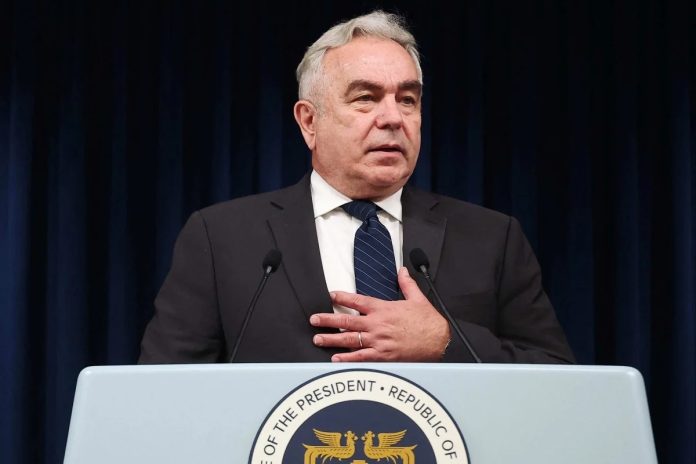Senior Biden administration officials on Monday conveyed a mixed message about negotiations with Beijing to ban the use of artificial intelligence in both American and Chinese nuclear arsenals.
The US had sought “a strategic dialogue with China for years on nuclear matters”, according to US Deputy Secretary of State Kurt Campbell, who depicted Beijing as reluctant to proceed with negotiations to limit its arsenal.
That said, China “may be prepared to talk about other issues around nuclear issues”, added Campbell in remarks at a Council on Foreign Relations event in Washington.
The two sides in May convened in Geneva, Switzerland, to hold initial talks on the use of AI in managing and deploying nuclear weapons.
“I think both nations understand, on some level, some of the challenges that AI presents to military command and control, particularly in the nuclear arena,” the No 2 American diplomat said.
But Tarun Chhabra, senior director for technology at the US National Security Council, said Beijing did not agree with American policy on the issue, diverging from Campbell’s emphasis on dialogue.
“Our position has been publicly clear for a very long time. We don’t think that an autonomous system should be getting close to any decision to launch a nuclear weapon,” Chhabra explained at the think tank’s event.
“That’s long-stated US policy … widely agreed by our allies … but not agreed by China today.”
Chhabra on Monday also touched on the intergovernmental AI talks carried out in Geneva.
Without elaborating on how or if the issue was raised, he said Washington argued that “as these systems become more powerful, we should simply have a venue to talk about risks and safety”.
“We have to kind of work through and come to the table with similar views about where the capability is going and what risk and safety might look like that in that context,” Chhabra added.
Liu Pengyu, a spokesman for the Chinese embassy in Washington, said Beijing “has always … opposed the use of artificial intelligence to seek absolute military advantage and hegemony”.
The military application of AI was one of the issues raised in Geneva, Liu added.
The State Department could not immediately be reached for comment.
The read-out published soon after the two presidents met, however, only vaguely mentioned the subject. It stated “the need to address the risks of advanced AI systems and improve AI safety through US-China government talks”.
Two weeks after the meeting, Colonel Wu Qian of the Chinese defence ministry urged “all countries, especially major countries, to adopt a prudent and responsible attitude to the research, development and application of AI technologies in the military field”.
Referring to related negotiations with the US side, Wu said Beijing was “ready to strengthen exchanges and cooperation with different parties, build consensus on regulating military use of AI, avoid the misuse, abuse and malicious use of relevant weapons systems and ensure human control over these weapons systems”.








































